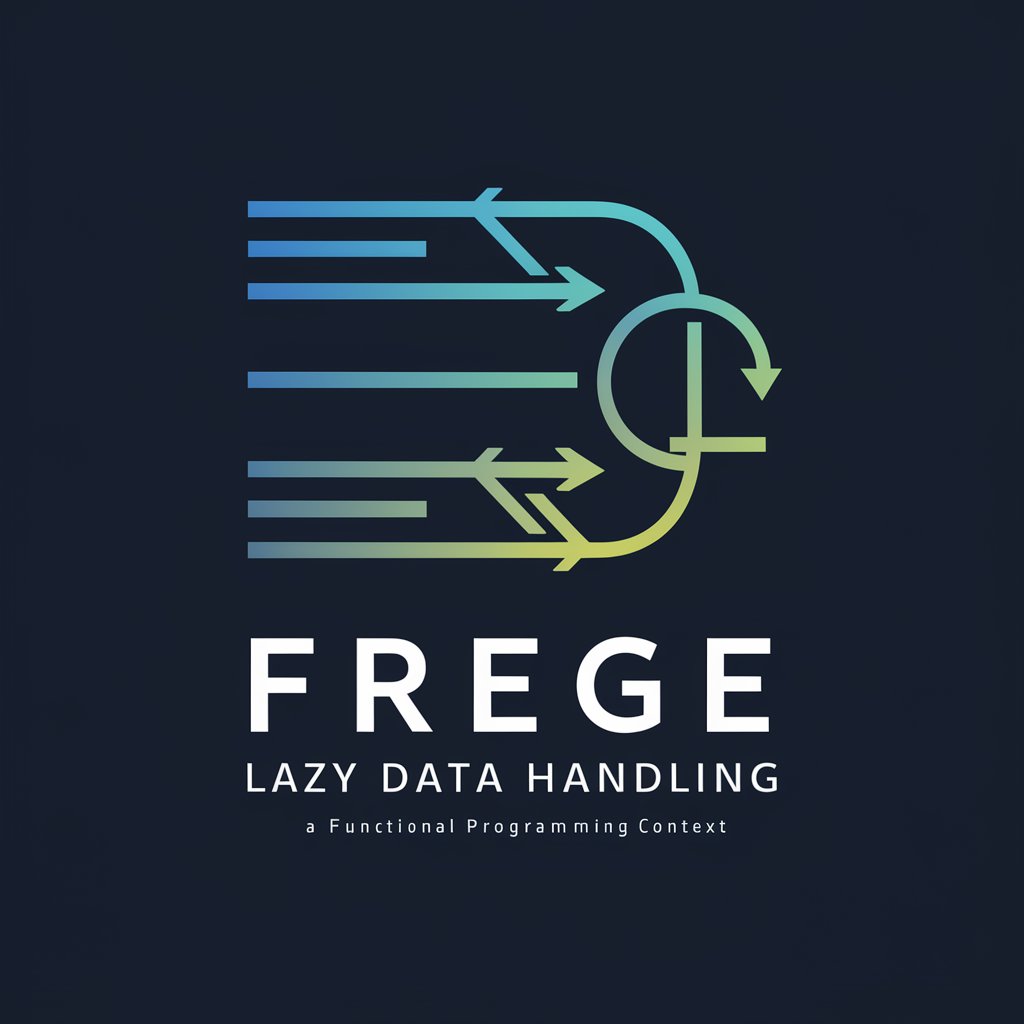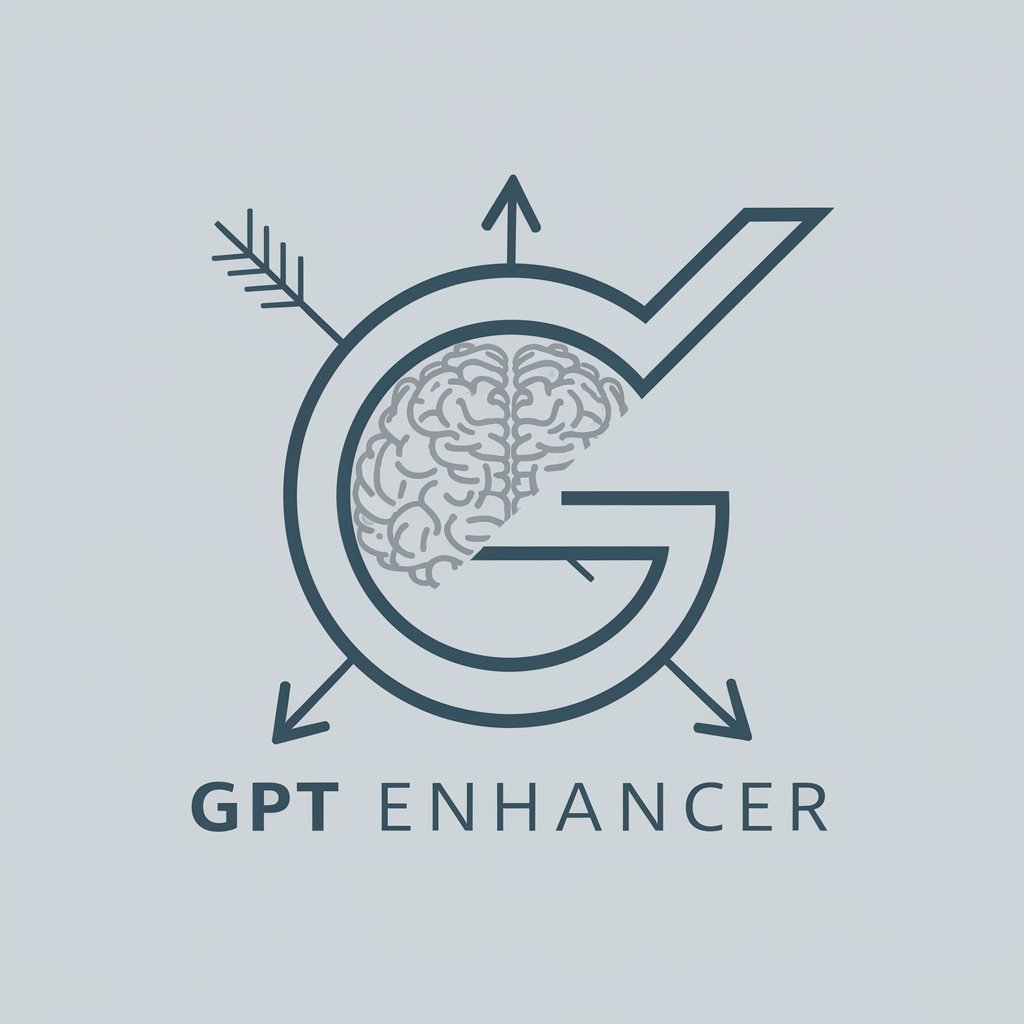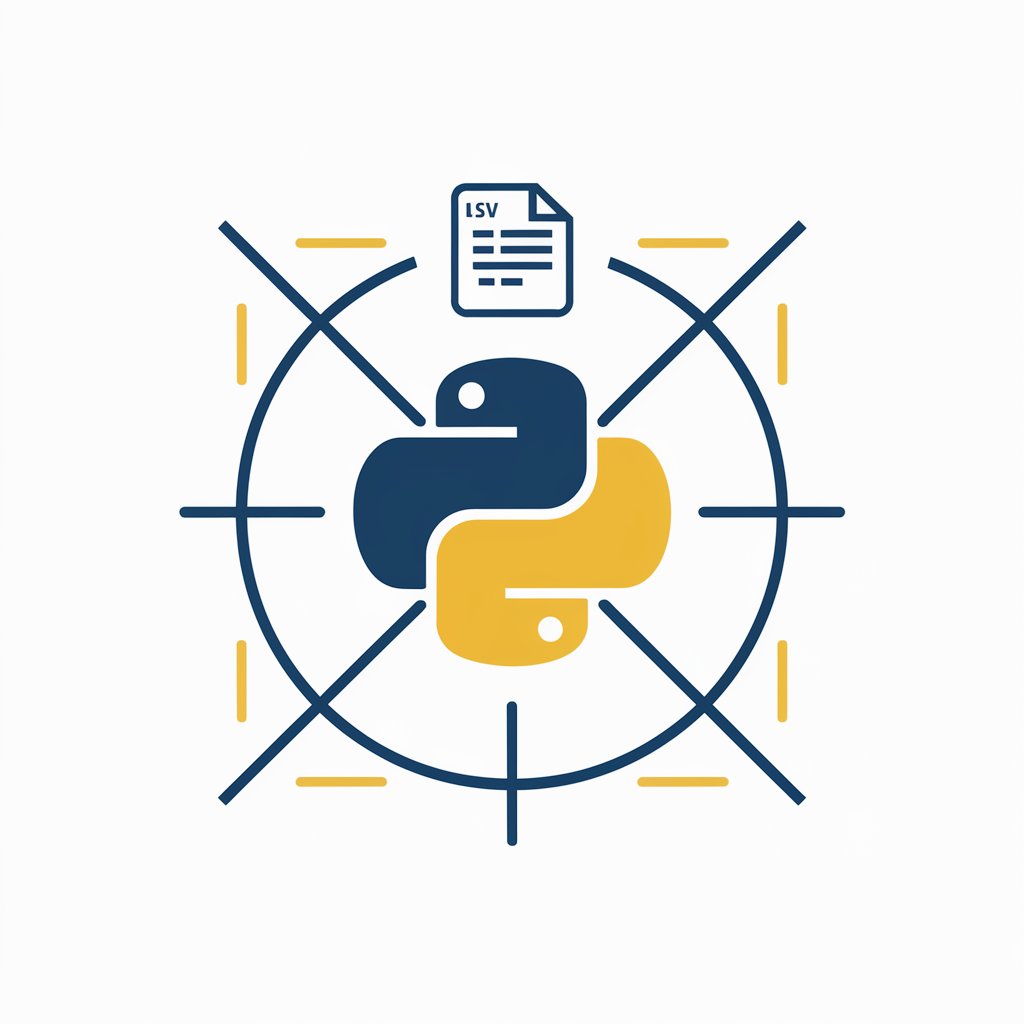
💻 Frege Lazy Data Handling - Lazy Evaluation in Frege

Welcome! Let's optimize data processing with Frege's lazy evaluation.
Efficiently manage big data with AI-driven lazy evaluation.
Explain the concept of lazy evaluation in Frege and its benefits.
How can I optimize memory usage when processing large data sets in Frege?
What are the best practices for handling IO operations in Frege with lazy evaluation?
Describe strategies to efficiently manage data dependencies in Frege.
Get Embed Code
Overview of 💻 Frege Lazy Data Handling
💻 Frege Lazy Data Handling is designed to optimize the processing of large data sets in a memory-efficient manner, leveraging the principles of functional programming and lazy evaluation inherent in the Frege programming language. The core design purpose is to minimize memory usage by loading and processing data only when it's needed, rather than all at once. This approach is particularly beneficial for applications dealing with large, potentially unbounded data streams or files, where loading entire data sets into memory would be impractical or impossible. For example, processing log files that are continuously generated or analyzing real-time data streams from sensors without overloading system memory. Powered by ChatGPT-4o。

Core Functions and Real-World Applications
Stream Processing
Example
Using Frege's `Stream` data structure to incrementally process data entries from a large file.
Scenario
Analysing server log files to detect anomalies without loading the entire log file into memory.
Lazy Lists
Example
Creating lazy lists to represent infinite sequences, allowing operations on these sequences without evaluating them entirely.
Scenario
Generating an infinite list of prime numbers, calculating and using them only as required by the application.
Memory-Efficient Data Transformation
Example
Applying transformations to large datasets using functions like `map`, `filter`, and `foldr` that operate on one element at a time in a lazy fashion.
Scenario
Filtering and summarizing user activity data from a large dataset to identify trends, without the need for loading the entire dataset into memory.
Deferred IO Operations
Example
Utilizing Frege's IO library to perform input/output operations lazily, ensuring that data is only read or written when absolutely necessary.
Scenario
Reading user input or file data in a command-line application only when the operation's result is required, improving responsiveness and reducing memory footprint.
Target User Groups
Data Scientists and Analysts
Professionals who work with large datasets for analysis, modeling, or reporting and require efficient data processing capabilities without overloading their system's memory.
Back-end Developers
Developers tasked with building and maintaining server-side applications that process large volumes of data, logs, or real-time streams in an efficient, scalable manner.
IoT Developers
Individuals developing applications for IoT devices that generate a continuous stream of data, needing to process this data in real-time with limited computing resources.
Academic Researchers
Researchers in computer science, especially those focusing on functional programming, data processing, and optimization, who benefit from the principles of lazy evaluation for experimenting with large datasets.

Guidelines for Using Frege Lazy Data Handling
Begin Your Journey
Start by exploring yeschat.ai to engage with Frege Lazy Data Handling without the need for a subscription or ChatGPT Plus.
Understand Lazy Evaluation
Familiarize yourself with the concept of lazy evaluation in Frege, which allows for efficient processing of large data sets by loading data elements as needed.
Set Up Your Environment
Install Frege and any necessary development tools on your machine, ensuring you have a Java runtime environment since Frege runs on the JVM.
Experiment with Code Examples
Practice with provided Frege code examples that demonstrate lazy data handling, focusing on how to process data efficiently without exhausting memory.
Leverage Frege Libraries
Utilize Frege's native IO library and external libraries for data loading and processing, taking advantage of lazy evaluation to handle larger data sizes effectively.
Try other advanced and practical GPTs
C# Data Processing Powerhouse
Empowering real-time insights with AI

Global X FORCE
Empowering Women Entrepreneurs with AI

Global Linguist
Empowering Communication with AI Translation

GPT Enhancer
Elevate Your GPT with AI-Powered Enhancement

Data Analysis: R Programming Essentials
Empower your data analysis with AI

An Online Job Finder
AI-Powered Job Discovery

Python: Tool in CSV File Mastery
AI-powered CSV data mastery at your fingertips.

Virtual Companion
Your AI-powered friend for engaging conversations.

Python Plotting Power Plays
Crafting Compelling Data Stories with AI

JavaScript in Data Visualization
Transform data into dynamic visual stories

Revolutionize Data with R: Interactive Web Mastery
Transform data into interactive stories with AI.

New Years Resolution Builder
Empower Your Resolutions with AI Insight

Frequently Asked Questions about Frege Lazy Data Handling
What is lazy evaluation in Frege?
Lazy evaluation in Frege allows for data to be processed on-demand, meaning that computations are deferred until their results are actually needed. This approach optimizes memory usage and efficiency when working with large data sets.
How does Frege handle large data sets efficiently?
Frege handles large data sets efficiently by leveraging lazy evaluation to process data elements only when necessary, thus minimizing memory consumption and avoiding loading the entire data set into memory at once.
Can Frege integrate with other programming languages?
Yes, Frege can integrate with Java seamlessly due to its JVM-based architecture. This allows for utilizing Java libraries and frameworks in Frege projects, enhancing its capabilities for data handling.
What are the best practices for error handling in Frege?
Best practices for error handling in Frege include using monads and functional programming patterns to manage errors gracefully. This allows for handling exceptions and errors without breaking the lazy evaluation flow.
How can I optimize my Frege code for better performance?
To optimize Frege code for better performance, focus on efficient data structures, minimize unnecessary computations, and leverage parallel processing where applicable. Profiling tools can also help identify and optimize performance bottlenecks.